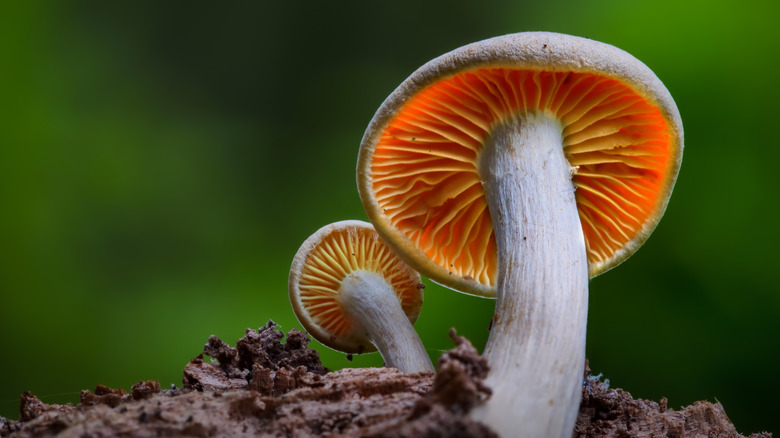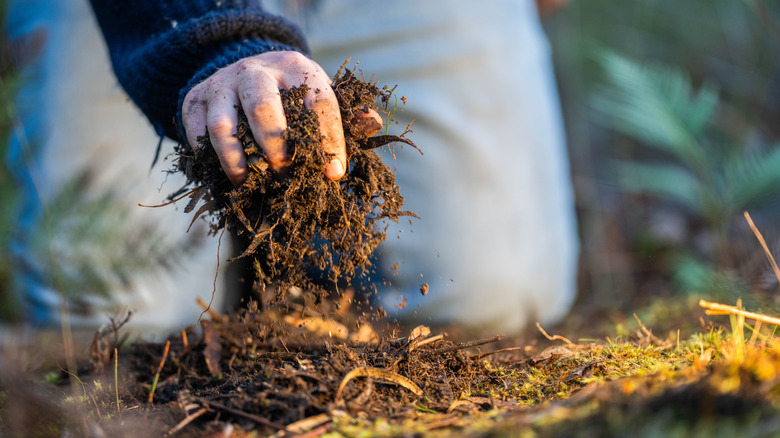Why Mushrooms Keep Sprouting In Your Garden (And What To Do About It)
Mushrooms are a fascinating species that grow under specific conditions. While some species of mushrooms can taste just like chicken, others play a better role in your garden. Although growing conditions vary slightly among species, most require a moist, humid environment. Given the time of year, mushrooms will likely grow in your garden due to the rich soil with consistent moisture or from decaying organic matter–such as a dead tree root. Fortunately, most garden mushrooms are usually harmless and easy to remove.
Mushrooms spread and grow when their spores are carried through the wind or transported by animals. If the conditions are ideal, the spores will germinate and develop into mycelium which will then produce mushrooms. However, if the area dries out, mushrooms may disappear on their own. Keep in mind that this does not permanently remove them, as the mycelium is still living underground.
In a way, sprouting mushrooms serve as nature's compliment for having a healthy soil environment. In general, mushrooms are harmless to your garden, being an eyesore at worst — its appearance will certainly deter your chances of winning your HOA's best lawn award. For those unbothered by their HOA, or don't have one to begin with, having mushrooms in your garden can be quite beneficial.
The magical benefits of mushrooms in your garden
Mushrooms provide an array of benefits to your home garden. After all, they are an effective recycler. Mycelium, the underground fungal network, supports a healthy soil environment by increasing carbon and nutrient levels while breaking down pollutants. This process leads to more nutrient-dense crops, thanks to rapid microbial activity that recycles nutrients. Mushroom substrates,–such as leftover coffee grounds, introduce fast-acting micros that fuel the process and enhance plant health.
Despite their benefits, mushrooms do come with a major drawback that's most concerning, especially regarding young children and grazing pets. While garden mushrooms can aid in growing your tomatoes alongside other plants, they can be toxic if ingested. If you're worried about your dog or toddler eating one out of curiosity, you can simply remove the mushrooms by hand or mow over them. Bear in mind that this only removes the fruiting body, as the mycelium remains underground and will continue to grow more mushrooms. If you prefer to err on the side of caution, the good news is that mycelium removal is a straightforward process. You can either dry out the area, eradicating ideal growing conditions or dig and remove the mycelium directly, though the latter is more taxing and damaging to your garden's ecosystem.
Overall, mushrooms make a great addition to any garden, enhancing a healthy growing environment. Home gardeners hoping to improve vegetable growth will enjoy the magical benefits that mushrooms provide.

